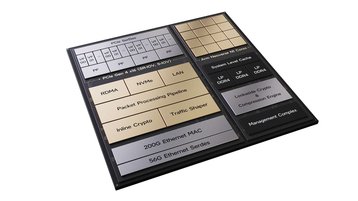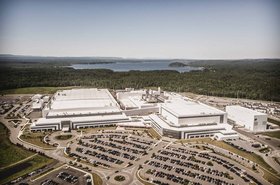Intel and Google Cloud have jointly launched a co-designed chip to improve data center performance.
The E2000 chip, code-named Mount Evans, is an infrastructure processing unit (IPU) that takes on network processing tasks, leaving the CPU to handle computing. By taking on encryption, it also adds a layer of security between different customers using a cloud service.
The IPU chip was co-developed with Google, but Intel is free to sell it to other customers.
Google has built it into a new virtual machine offering, called C3 VM, powered by Intel's fourth-generation Xeon processors.
Intel's announcement described the E2000 as “a significant milestone in delivering an end-to-end programmable platform,” claiming that its architecture allows C3 machines to run 20 percent faster than the C2 predecessors.
The announcement lends credence to moves for infrastructure processing units (IPUs), sometimes referred to as DPUs, a development of network chips beyond traditional smart NICs (network interface controllers).
“We are pleased to have codesigned the first ASIC infrastructure processing unit with Google Cloud,” said Nick McKeown, general manager of Intel's network and Edge group.
"The System on a Chip hardware architecture introduced in C3 VMs can enable better security, isolation, and performance," said a Google Cloud blog about the C3 machines. "In the future, this purpose-built architecture will also allow us to offer a richer product portfolio, such as support for native bare-metal instances."
Among other things, the new architecture enables block storage by decoupling compute instance sizing from storage performance. This delivers more IO performance per virtual CPU.
The IPU also gives C3 VMs 200Gbps low-latency networking, encrypted at line-rate by the open-source PSP protocol.
In the long term, Google says its IPU, and previously announced TPU will allow infrastructure to become more autonomous.
"With the exponential rise in the complexity of cloud infrastructure, we as an industry must turn to automation to manage these platforms efficiently at scale," says the Google blog. "Along with Infrastructure as Code, custom chips like the Titan, the TPU, and the IPU, pave the way for a not-so-distant future where we’ll automate over half of all infrastructure decisions, configuring systems dynamically in response to usage patterns."




